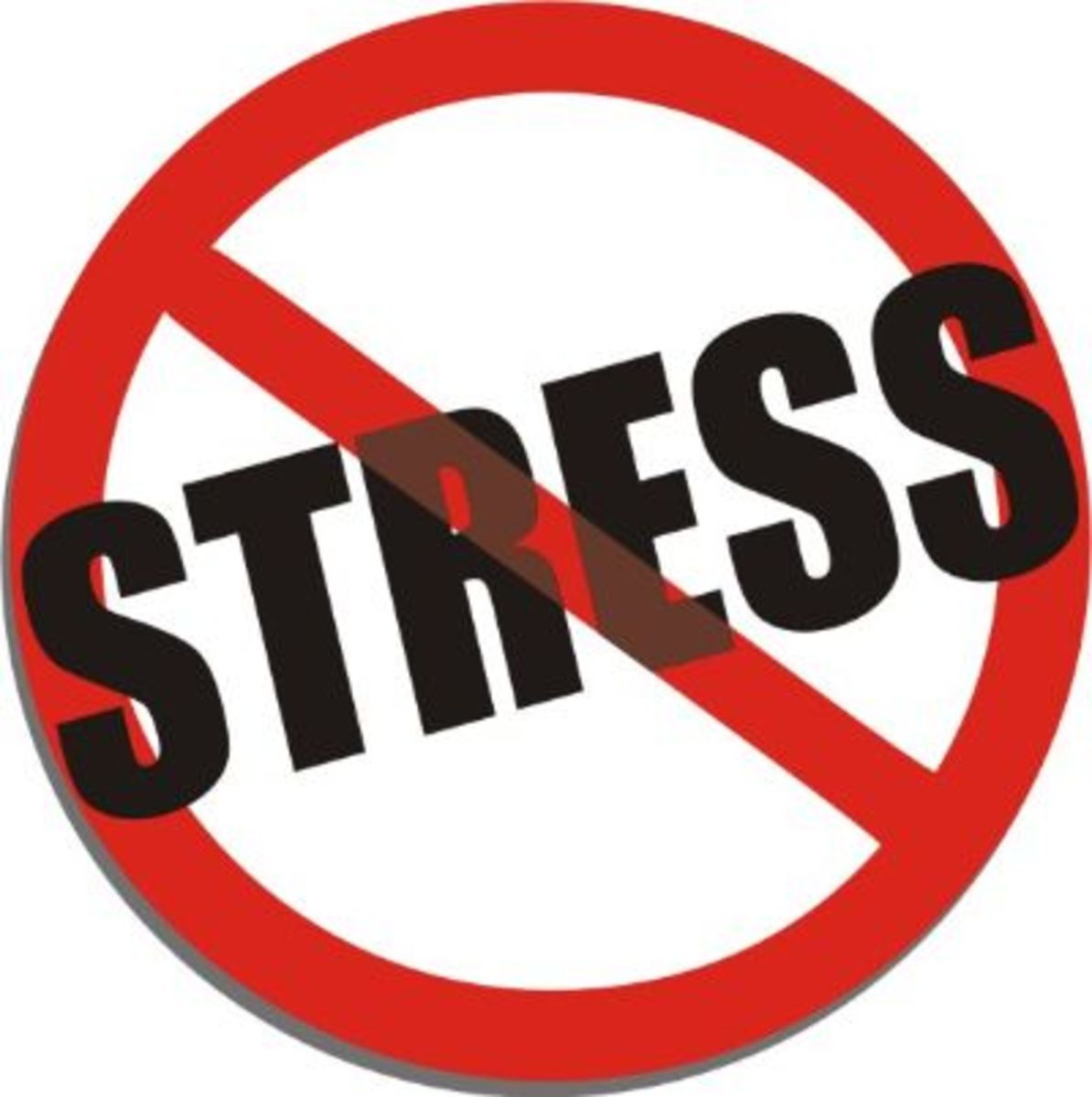- HubPages»
- Health»
- Mental Health»
- Stress Management
Stress Management Basics

You can't eliminate stress from your life, and nor should you want to. Stress is one way that your body signals the "fight-or-flight" reflex, your built-in warning system that prepares you for emergency situations. Most of the time, however, this warning system is on a higher status of alert than it needs to be.
Rather than getting rid of stress altogether, a more practical approach would be to learn how to manage stress so that it doesn't make your life a misery. Stress isn't just a mental hazard, though; it's a physical one, too. Learning how to manage stressful situations can help you lead a calmer and more productive life in which you feel more in control.

Managing Mental Stress
Mental stress can be debilitating, leaving you worried, nervous, frightened or feeling vulnerable. If you have too much on your mind, you won't be able to concentrate on what needs to be done. If you're constantly worried about a particular aspect of your life, you won't be able to get on with the act of living.
What things can cause mental stress? Here's a basic list:
- Work pressures
- Relationships
- Financial problems
Stress can be brought on by the simplest of things, like getting stuck in traffic on your way to work, or forgetting to pay a bill. Most people cope with the big stress situations, like getting married, moving house, and so on, because these are generally positive events that make them feel good.
Stress can muddle your thinking, making it difficult for you to focus on the here and now. Here are a few techniques you can use to ensure your mental stress levels never get too far out of proportion:
- Practice relaxation - You've probably heard the phrase "learn to relax" too many times, but it's one of the most important stress-reducing methods available. All you need to do is take some time to sit back, relax, breathe deeply, and try to clear your mind. If that doesn't do it for you, try going for a walk. Gentle exercise will give you time to think and clear your head. For deeper relaxation, consider trying meditation and yoga once or twice a week.
- Manage your time - Time management can reduce your stress levels significantly. If you're always ready for that meeting, always get your work finished on time, and can leave the building at the end of the day feeling satisfied, knowing you're ready for whatever tomorrow brings, chances are you won't be stressed.
- Reward yourself - Did you do a good job today? Have you saved up the money for a special treat? Did you manage to achieve any goals you set for yourself? Write down your achievements at the end of the week or month, just to give your confidence and self esteem a boost. This positive reinforcement will prove to you that you don't need to worry or get so stressed about your life, because it's not all bad.
We live in a world where everything is immediate, where we have access to global news and information twenty-four hours a day. While that may be a good thing on one level, it can also make us edgy and uptight to know what's going on. Sometimes, though, it's a good idea to switch off the phones and computers and just do nothing, giving your mind the chance to calm down and recharge its batteries.

Managing Physical Stress
When your body's under stress it reacts. The fight-or-flight response is meant for emergencies only, so if you're feeling stressed all the time your body is going to suffer. You'll start to feel tired, irritable, forgetful, and unable to make decisions.
As you might have guessed, the best way to manage physical stress is to take good care of your body. That means treating it with respect and giving it the nourishment it needs to perform properly. Here are some things you should consider:
- Eat a balanced diet - A balanced diet means regular meals at regular times of day, including breakfast, lunch, and dinner. You should try to eat as many fruits and vegetables as possible, varying your intake of proteins and carbohydrates to make sure you feed your body with the right combination of nutrients. Food gives you energy, so aim to stay away from too much fat, sugar, and alcohol.
- Take regular exercise - Go for a walk or play your favorite sport. Spend an hour or two weeding the garden. Get some fresh air into your lungs on a regular basis. Exercise helps you to use up excess energy, leaving you relaxed and refreshed. Regular exercise has also been shown to reduce tension and relieve depression.
- Get a good night's sleep - A good night's sleep means between six and nine hours of restful sleep every night. Strive to go to bed at roughly the same time and to get up at roughly the same time. Your body thrives on routines - like eating regular meals and taking regular exercise - so make sure your sleeping patterns fit in with that.
Stress Comparison Table
Causes of Stress
| Stress Reducing Methods
|
|---|---|
Lack of sleep
| Regular sleep regime
|
Poor diet
| Healthy balanced diet
|
Lack of exercise
| Regular exercise
|
Lack of control
| Taking control
|
Inability to relax
| Relaxation techniques
|
Don't Sweat the Small Stuff
Managing stress these days is vital, as long as you remember that stress is there for a reason.
Performers, public speakers, teachers, and lawyers will tell you that stress keeps them on their toes. It helps get them fired up before they deliver their lessons, before they address the court, before they speak or play in front of an audience. Without a little bit of stress their performances would be flat, uninspiring, and very hard work indeed.
As long as you look after yourself in the general sense, stress shouldn't take over your life. Eat well, get plenty of sleep, take some form of exercise a couple of times a week: these things will instantly lower your stress levels and give you more energy.
Likewise, if something's on your mind, take some time out to reflect. Manage your time wisely and remember to break up your day with opportunities for deep breathing. Give yourself credit for the good things you achieve, and only worry about the things that you have control over.
Little things will always come along that have the potential to annoy, but they are just little things. Strive to manage your stress levels adequately and you'll have the energy and enthusiasm to cope with almost anything life throws at you.
About JohnMello
I'm a freelance writer, author, musician and composer. Visit my self help blog at http://theselfhelpzone.blogspot.co.uk/ for lots of freebies.
Stress Related Articles for Further Study
- Meditation to Reduce Stress
Want to be able to relieve yourself of some of the inevitable stress that life throws your way? Here's a technique that's guaranteed to help you slow down, calm down and put things in perspective. - Awesome Stress Relief Techniques
Stress is a part of modern life, like it or not. Here are some techniques you can use to help you cope with it, even if you can't get rid of it completely. - The Four Types of Stress
Find out how to cope with stress more effectively by knowing what kind of stress you're experiencing!








